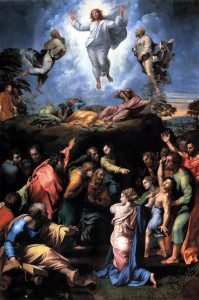 We make choices and perform actions which affect us both now and in the future. What we do gives things and people power over us. Consider the pilgrims of our country. Before they had their own government, England had power over them; to make laws and enforce laws but without representation where the laws were being made. They chose to take that power away from England, to reject taxation without representation, and to form a new nation. And so we see, that with our actions we have the ability to take power away from one thing and give it to something which represents us better. Lent is the time to take power back from the world, from its control over us, and give that power back to God.
We make choices and perform actions which affect us both now and in the future. What we do gives things and people power over us. Consider the pilgrims of our country. Before they had their own government, England had power over them; to make laws and enforce laws but without representation where the laws were being made. They chose to take that power away from England, to reject taxation without representation, and to form a new nation. And so we see, that with our actions we have the ability to take power away from one thing and give it to something which represents us better. Lent is the time to take power back from the world, from its control over us, and give that power back to God.
In the Gospel we see a recognition that, the one we listen to has great power to influence and change our lives. Whom we choose to listen to and believe, this is a way we give power to someone over us. We heard the Father exclaim, “Listen to my beloved Son.” Before this, we can imagine that the disciples were growing in their trust of Jesus, but not yet having absolute trust. They knew that Jesus was a great teacher, a prophet. They also saw him work miracles. But to give him absolute power over themselves they had to know something more. They had to know that he was the Son of God.
On this mount of Christ’s transfiguration, we find the Father affirming to the disciples; this man, Jesus, is my Son; you may listen to him. You may open your heart to him without caution, without hesitation. He will lead you to a glorious “transfiguration.” Of your mind, of your heart, even of your body. Listen to him… he represents you before me. Lent is the time to express our consent to God having this power. We withdraw away from earthly things which control us. Through fasting, prayer, and almsgiving the power of the world over us is weakened, so that we can listen to Christ.
These are specific actions of deepening our commitment to the new covenant formed in Christ. The Old Testament had its own covenant, and we heard of its beginning in the first readings. God and Abraham entered into this covenant through a very gory action. It was the way agreements and promises were made at that time. Animals were slaughtered, and split forming a bloody path between which the parties entering the agreement would walk. Through this ritual action they were saying, “If I don’t keep my covenant with you, let it be done to me what has been done to these animals.” They didn’t have a system of contractual law, courts, and enforcers of these laws. Instead, what they had was a way to let them feel and express the depth of their consent to the agreement, to the promise.
And Christ truly represents us in the completion of this first covenant made with Abraham. Did Abraham and his descendants breech the convenant made with God? Yes. But Christ willingly took the place of humanity, allowing what happened to those animals happen to him. Through his representation of us to God, that covenant was fulfilled and surpassed by a new one; one in which we could share in the glory of his resurrection. through the forty days practice of Lent, we renew the consent to his new covenant of our baptism, and become better able to listen to Christ, “our light and our salvation” as the Psalmist exclaims.
By now we should have chosen something “to give up for Lent”, something which has power over us; something that in the past has kept us from responding to God fully. This is a tradition in the Church; something beyond the communal fasting of food and abstinence of meat. Television, Video Games, these are good things to fast from. We turn our ears to God instead of the world. We will see the results. The transfiguration into his glory will have deepened in us. Let us renew our commitment and become better able to listen to Christ with our whole beings through fasting, prayer, and almsgiving. Only he is worthy of absolute devotion; only he represents unto eternal life.

